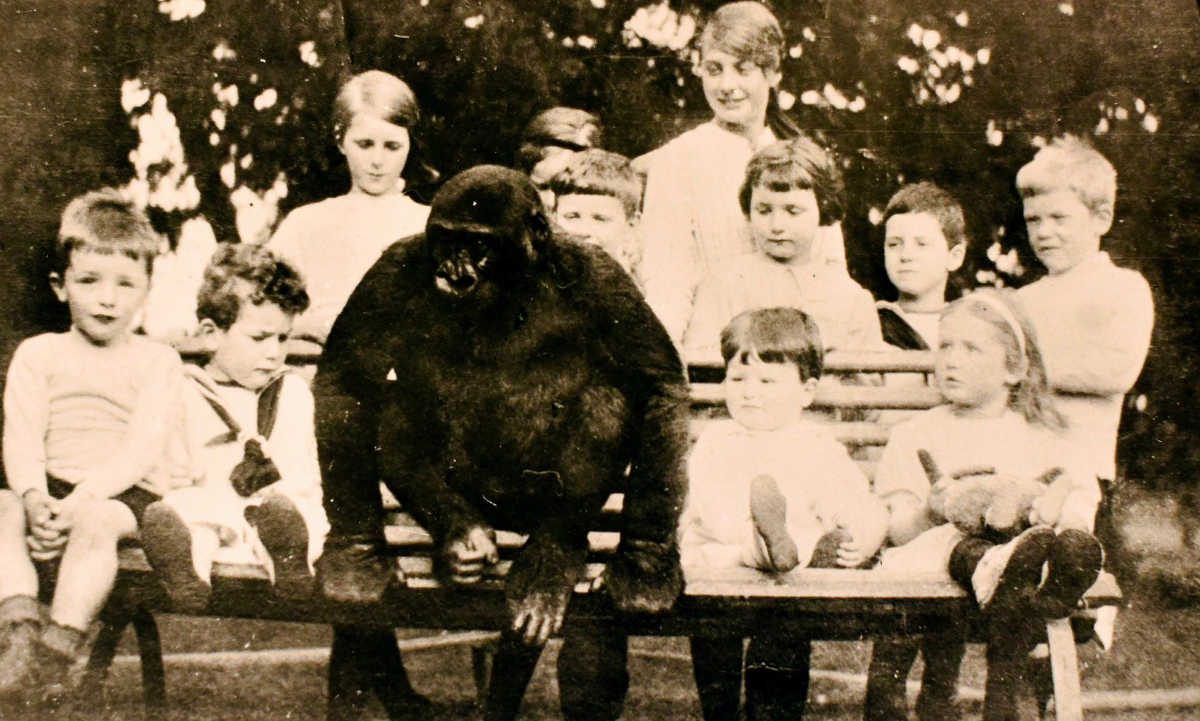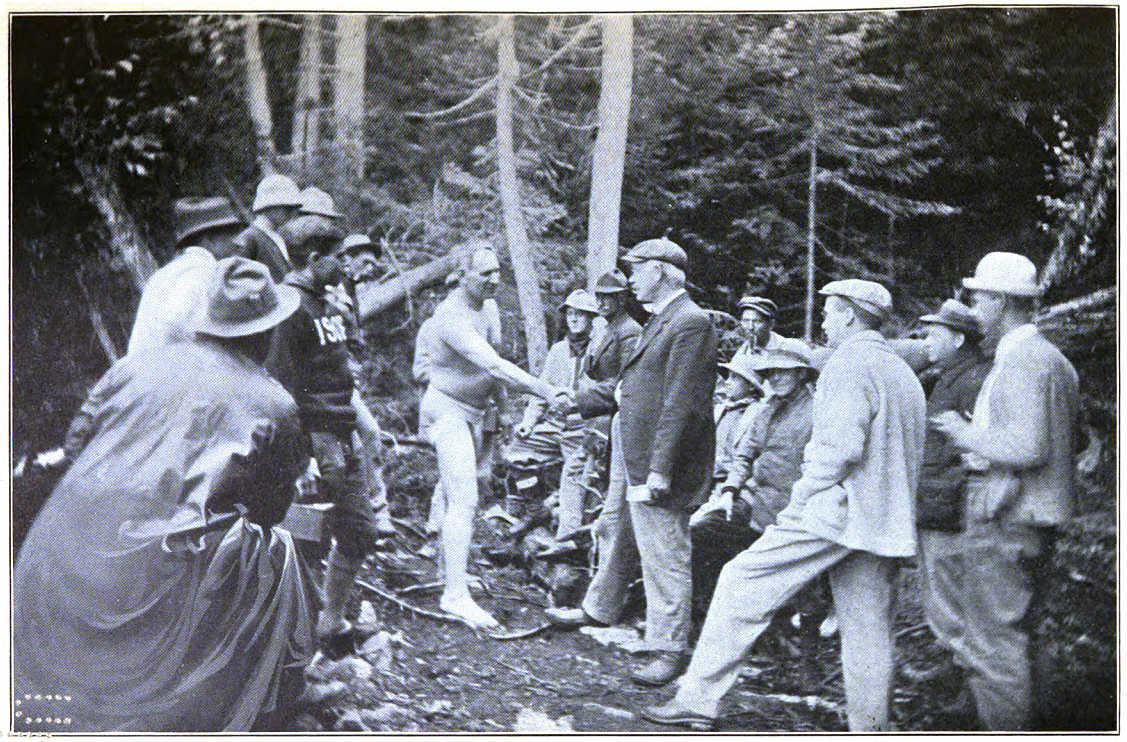
The English village of Uley had a remarkable citizen in 1917: a lowland gorilla, captured in Gabon by the French soldiers who had shot his parents. Uley resident Rupert Penny spotted him for sale in a London department store, paid £300, and named him John Daniel, and his sister Alyce raised him like a human boy.
“Until recently, we had people that remembered him walking around the village with the children,” said Margaret Groom, an archivist at the Uley Society, who unearthed a collection of old photographs. “He used to go into gardens and eat the roses. The children used to push him around in a wheelbarrow. He knew which house was good for cider, and would often go to that house to draw a mug of cider. He was also fascinated by the village cobbler, and would watch him repairing shoes. He had his own bedroom, he could use the light switch and toilet, he made his own bed and helped with the washing up.”
She had to sell him when he reached full size, and he passed into the hands of a circus. Eventually Alyce received an urgent message reading “John Daniel pining and grieving for you. Can you not come at once? Needless to say we will deem it a privilege to pay all your expense. Answer at once.”
She set out immediately, but he died of pneumonia before she arrived. His body was given to the American Museum of Natural History for preservation and remains on display there today.
(Thanks, Steve.)









